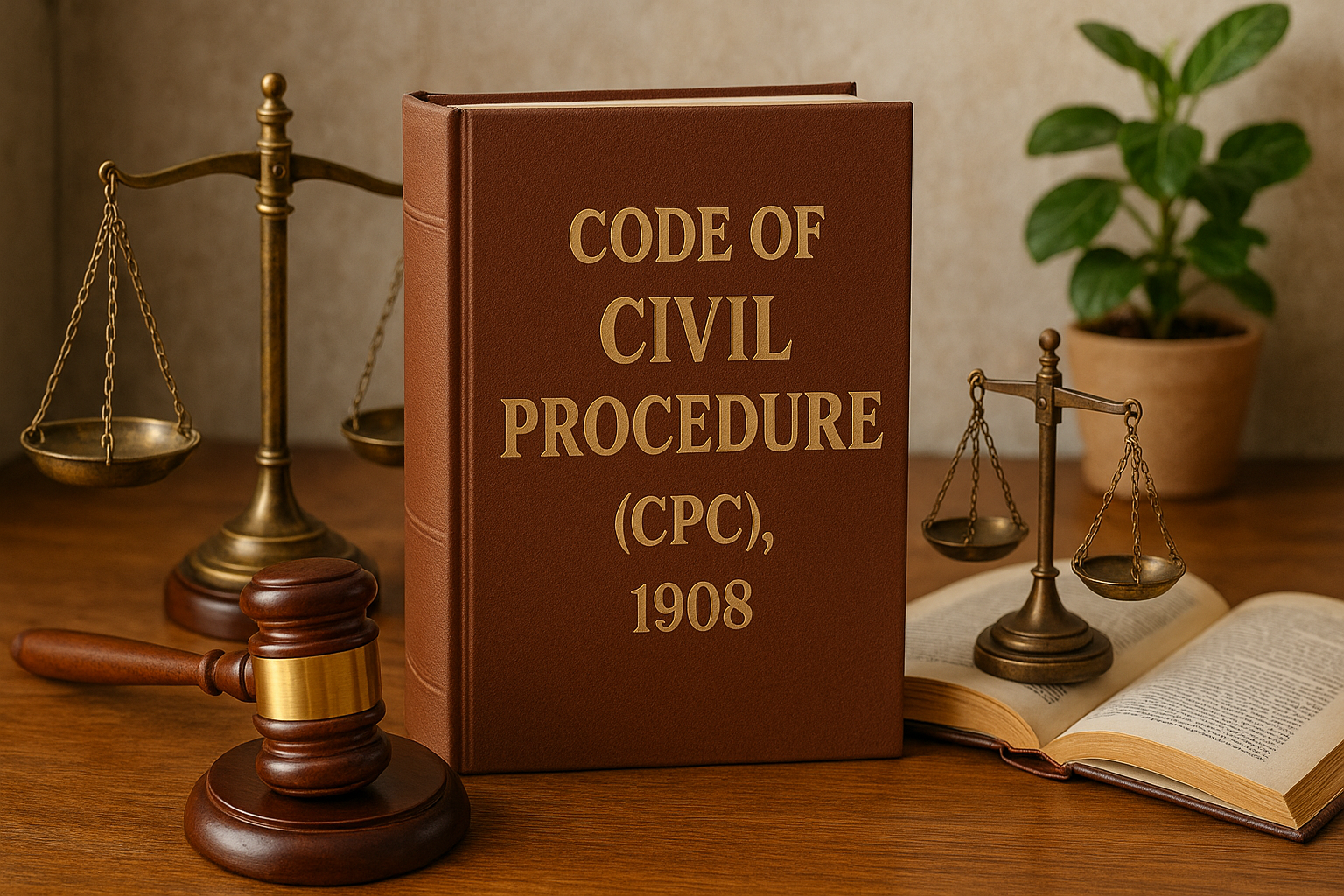What is Jurisdiction?
In civil law, jurisdiction refers to the authority of a court to hear and decide a case. Without proper jurisdiction, any order or judgment passed by a court is null and void.
Types of Jurisdiction under CPC
CPC classifies jurisdiction into five main types:
1. Subject-Matter Jurisdiction
-
Refers to a court’s authority to hear cases of a specific type.
-
Example: A Rent Controller cannot decide a divorce case.
2. Pecuniary Jurisdiction
-
Based on the monetary value of the claim.
-
CPC allows different courts to handle different value ranges.
-
Example: A suit of ₹50,000 may go to a Junior Civil Judge, while one of ₹20 lakh goes to a District Judge.
3. Territorial Jurisdiction
-
Refers to the court’s power over geographical area.
-
Depends on where the defendant resides or where the cause of action arose.
4. Original and Appellate Jurisdiction
-
Original: Where a case is first filed.
-
Appellate: Where decisions of lower courts are appealed.
5. Exclusive and Concurrent Jurisdiction
-
Exclusive: Only a specific court can hear the case.
-
Concurrent: More than one court has the authority.
Relevant Legal Provisions
| Section / Order | Jurisdiction Type | Description |
|---|---|---|
| Section 9 | General Jurisdiction | Civil courts can try all suits unless barred |
| Section 15–20 | Territorial & Pecuniary | Where suits to be filed (place & court level) |
| Section 21 | Objections to Jurisdiction | Must be raised at the earliest stage |
| Order 7 Rule 10 | Return of Plaint | If court lacks jurisdiction, plaint is returned |
Key Principles to Decide Jurisdiction
-
Valuation of Suit – Courts follow valuation as mentioned in the plaint.
-
Cause of Action – The place where the cause of action arose is important.
-
Defendant’s Residence – Suit can often be filed where the defendant resides.
Example to Understand
Let’s say:
-
A person living in Delhi sells goods worth ₹5 lakh to someone in Mumbai.
-
The payment was not made, and the buyer resides in Mumbai.
Where to file?
-
Since the cause of action partly arose in Delhi and partly in Mumbai, the suit can be filed in either Delhi or Mumbai, provided pecuniary limits are met.

